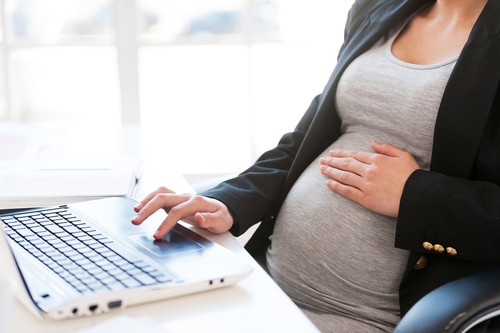Pregnancy and maternity discrimination – have you been treated unfairly at work?
As an increasing number of women begin returning to the post-pandemic workplace, it's clear the issue of pregnancy and maternity discrimination has far from gone away.
Research carried out before Covid-19 by the Equal Opportunities Commission found that almost half the 440,000 pregnant women in Britain at the time had experienced some form of disadvantage at work simply for being pregnant or taking maternity leave. It also reported 30,000 women were forced out of their jobs.
It would appear the situation has not improved. Since the start of the pandemic, the charity, Pregnant Then Screwed, has provided 34,000 women with legal advice on issues around pregnancy and maternity discrimination. This compares to about 3,000 calls in a normal year.
A growing problem?
The number of legal claims and disputes against employers for pregnancy and maternity issues ending up in employment tribunals also appears to be growing.
Recent successful cases include:
- A pregnant woman who won her claim because of unfavourable treatment during her pregnancy. This included unpleasant remarks by colleagues about her pregnancy and being asked whether she intended to return to work after giving birth;
- A nursery worker who proved she'd been the victim of several detriments after telling her employer she was pregnant. This included having her working hours reduced and then being made redundant whilst on furlough, the only employee at the nursery to experience this.
What counts as pregnancy and maternity discrimination?
Under the Equality Act 2010, it is unlawful for an employer to discriminate against a woman - in other words, treat her unfavourably - because she is pregnant, has recently given birth, is breastfeeding, has a pregnancy-related illness or is taking or seeking to take maternity leave.
What is unfavourable treatment?
This can take several forms including being demoted or looked over for promotion, being dismissed or excluded, not being allowed to attend antenatal appointments or having job responsibilities changed or removed without discussion.
When is an employee protected from pregnancy or maternity discrimination?
For a claim to be successful, the employee needs to show that she had been treated unfavourably because of her pregnancy and that this occurred during the protected period. The protected period starts when the pregnancy begins and usually ends when the maternity leave period finishes or the employee returns to work.
What can employers do?
Employers may have a defence to a discrimination claim if they can show that they took all reasonable steps to prevent any discrimination from occurring in the workplace.
This is why having policies in place, promoting and training employees on equality, diversity and inclusion is so important to prevent discrimination.
How can we help?
Whether you are pursuing or defending a discrimination claim, this is a complex area of the law and we recommend seeking specialist legal advice as soon as possible, particularly as time limits apply
Get in touch
- We can advise women on whether they can pursue a discrimination claim because of their pregnancy or maternity status.
Wards is experienced in all types of employment disputes, for both individuals and business; please get in touch if you need advice on any area of employment law.
For more information, please contact Wards Solicitors' specialist employment disputes lawyer, Laura Ramos.
Email: Laura.Ramos@wards.uk.com
Phone: 0117 929 2811


